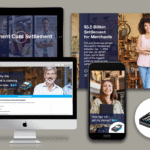
In the age of big data, where metrics, analytics, and spreadsheets are endlessly obsessed over, there remains a powerful force that has been driving business success long before the advent of algorithms – good old-fashioned human instinct.
PR and marketing professionals often find themselves at a crossroads: should they rely on cold, hard data to drive their strategies, or should they trust their instincts, honed by their real-world experience.
While data-driven insights undeniably play a crucial role in marketing and communications, there are times when being led by data without considering its context and potential biases can lead to flawed decision-making.
In this blog post, we explore when to listen to your gut over the numbers and how embracing your instincts can fuel innovation and success.
Limitations of Data:
- Lack of Context: Knowing that your customers buy more of your product on weekends is a fact. Understanding that they do it because they feel guilty about using it on weekdays is an important insight. We still need our instincts and experience to understand the “why,” and then work out how to use the insights strategically.
- Predictive Limitations: While data can provide insights based on historical information, it may not always accurately predict future trends or consumer behavior, especially in rapidly changing markets or industries.
- Emotional Insights: Data may not fully capture emotional responses and subconscious motivations of consumers, which are essential elements in crafting compelling marketing campaigns.
- Data Can Lie: Data can be influenced by biases, data collection methods, and data sources. In the case of major events like Brexit and the U.S. Presidential election, complex algorithms and millions of dollars’ worth of data failed to accurately predict the outcomes because context and potential biases weren’t taken into account.
Of course, this doesn’t mean we should ignore important facts that can arise from data, but it does mean allowing yourself to look at the information with a discerning eye and seeking to understand how the numbers fit into the big picture.
Our unprecedented access to data means we know more about our customers and audiences than ever before. But more doesn’t always mean better. The real value of data lies in the insights that can be pulled from it — mountains of data are worthless if they don’t lead to actionable insights.
So when should you follow the numbers and when should you trust your gut?
Data usually trumps intuition when it comes to activities like market research, A/B testing, budgeting, identifying trends and optimizing performance.
When is Intuition More Effective?
- Navigating Ambiguity: In situations where historical data might be scarce or inconclusive, instincts can serve as a compass to make informed decisions based on previous experiences.
- Leveraging Emotional Engagement: While data can provide quantitative insights, it often falls short in capturing emotions and sentiments which can foster genuine connections that lead to brand loyalty.
- Emerging Trends: While data can highlight existing trends, instincts can be invaluable in predicting and capitalizing on future trends that may not yet be reflected in the data.
- Innovation and Creativity: Instinct-driven thinking fosters innovation, enabling marketers to break free from conventional norms and develop groundbreaking campaigns that stand out from the competition.
The sweet spot is finding a way to leverage the unique strengths of each and finding a harmonious balance between the two.
At (W)right On, our team leverages data as a valuable tool to inform and validate our creative instincts. We bring together data analysts and creative minds to develop well-rounded strategies that are data-informed and creatively inspired.
In conclusion, while data-driven insights are undeniably valuable in marketing campaigns and planning, there are times when listening to that little voice inside your head even when it’s not jiving with the data can lead to remarkable innovation and success.















 Grant Wright
Grant Wright Corie Fiebiger
Corie Fiebiger
 Shae Geary
Shae Geary Phelan Riessen
Phelan Riessen Katrina Early
Katrina Early Hamish Marshall
Hamish Marshall
No comment yet, add your voice below!